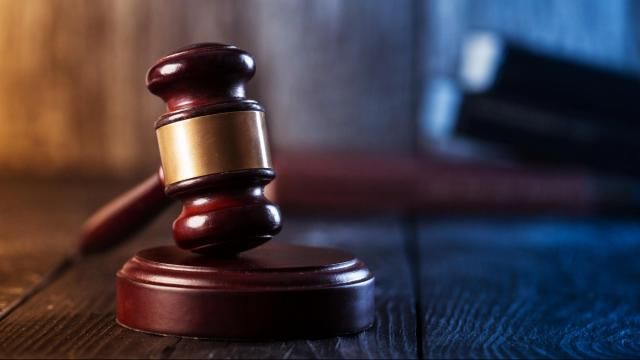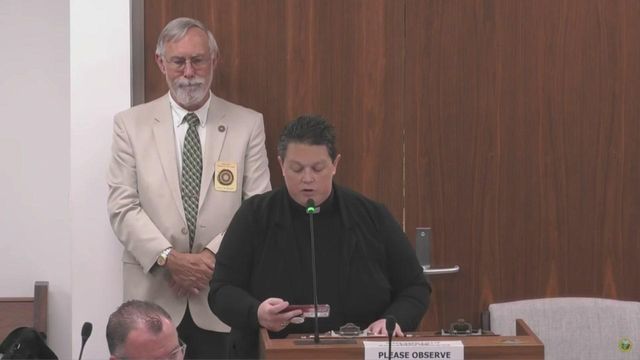Kinston residents accuse city of discrimination in Supreme Court case with statewide implications

A group of Black residents of Kinston say their local government is racially discriminating against them in how the city chooses which properties to target with foreclosure notices and threats of demolition. They’ve now taken their fight all the way to the North Carolina Supreme Court, which heard arguments in the case Tuesday.
The city of Kinston denies that racial discrimination has played any role in what it described as efforts to clean up blighted areas of town. And so far courts have agreed; there has been no legal finding that the city has engaged in any discriminatory behavior.
The city’s stance is that cleaning up dilapidated, potentially dangerous properties can help improve the whole community. Kinston Mayor Don Hardy is Black. So is every other member of the city council.
“There just is no evidence of race discrimination,” Dan Hartzog Jr., the Kinston lawyer defending the city in this case, said during Tuesday’s arguments.
But the residents behind the lawsuit, led by Joseph Askew — a local activist who ran for a seat on the Kinston City Council last year, finishing in sixth place with 1.8% of the vote — say none of the previous court hearings properly dealt with the issues in the case.
Their attorney, Ralph Bryant, said they had evidence of local officials intentionally targeting majority-Black parts of town. But they couldn’t argue that evidence at the Supreme Court, he told the justices, because the Court of Appeals declined to address it previously.
Justice Richard Dietz noted after that comment — and at several other times during the oral arguments — that he wasn’t sure the Court of Appeals ruling had considered the legal issues most relevant to the case.
“They seem to have addressed a completely inapplicable theory,” said Dietz, a Republican who served on the appeals court before winning election to the high court in 2022.
One option for the Supreme Court could be to send the case back to a lower court for a closer look.
Kinston officials would rather this issue not be in court at all. They say the residents didn’t do enough to exhaust their appeals with local authorities before bringing this lawsuit.
Justice Anita Earls — a Democrat who is also the court’s only Black member — was unconvinced by that argument. If the city is discriminating against its residents, she said, why should those residents be stopped from suing before first trudging through multiple layers of city bureaucracy led by the same people behind the alleged discrimination?
She added that if the city wins, its argument could be expanded to other constitutional rights outside of racial discrimination issues. Cities could hypothetically have more leeway to wrongfully condemn property owned by someone who criticized a powerful politician, she said — and that critic would be forced to fully finish a lengthy process, dictated entirely by the city, before being allowed to make any First Amendment violation claims in court.
“‘You’re targeting me because of my public speech,’” Earls said, speaking in the hypothetical. “‘I came in and criticized the city council, and you decided to condemn my property to chill my speech.’ That claim? There could be no opportunity for someone in those circumstances to halt the city’s enforcement process?”
Hartzog said that the city does believe its own appeals process needs to be fully finished before courts can get involved — because of state law. So he said any fix there should be on the legislature, not the courts, to enact.
He noted that in circumstances such as the one Earls described, however, people who think their rights have been violated could always file a federal constitutional lawsuit, even if they might not have the ability to do so in state court.
Chief Justice Paul Newby, a Republican, directly asked Bryant why his clients hadn’t filed a federal racial discrimination claim. Bryant said they should be able to count on state courts to protect their rights.
“I’m African-American,” Bryant told Newby. “And when I see the constitution say that it protects us from race discrimination, I think the state should honor that.”









